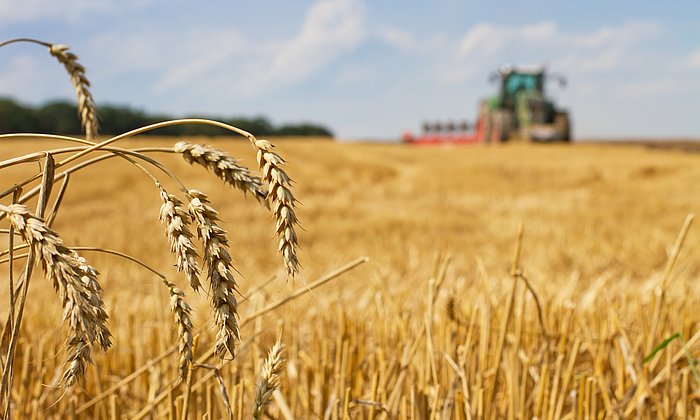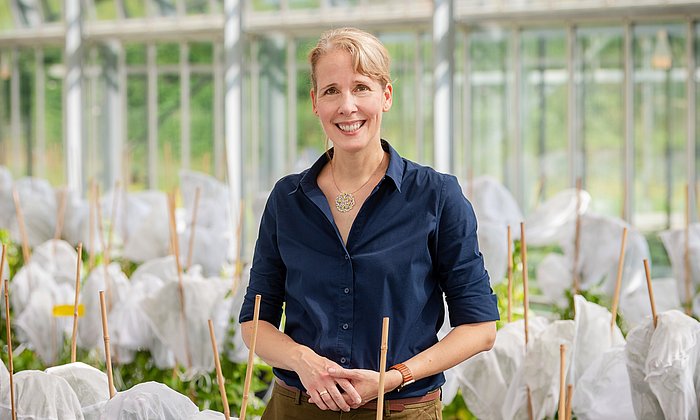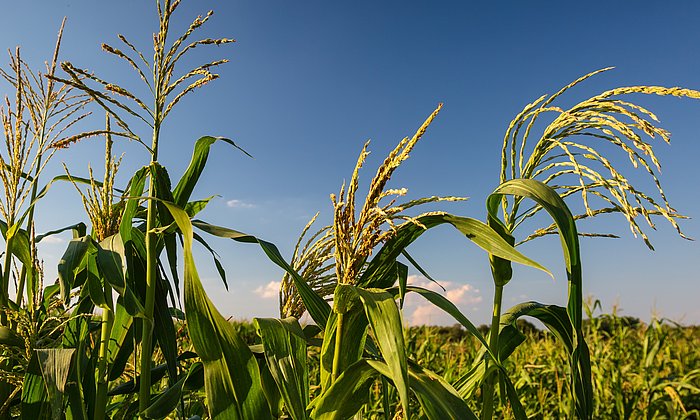Finals of the Werner Siemens Foundation "project of the century" competition
TUM agricultural research in the race for CHF 100 million

The TUM researchers' objective is to feed a constantly growing world population without ruining the earth in the process. Asseng, Professor at the TUM School of Life Sciences on the Weihenstephan campus and Director of the Hans Eisenmann-Forum for Agricultural Sciences at TUM, says: "We're tackling one of the largest challenges facing mankind. And mastering this challenge will take no less than a revolution in the mass production of staple foods."
The multi-disciplinary TUM team is pursuing an integrative concept involving energy-efficient, highly-automated and pesticide-free cultivation of agricultural crops, linked with minimal water and space requirements as well as complete independence from the weather. According to the researchers, the greatest hurdles in their project are the modification of agricultural crops to accommodate the controlled environments, the development of efficient and sustainable technologies and processes, infrastructure costs and energy requirements as well as generating societal acceptance of the new plant-based agricultural production. Still, the water needed to produce adequate harvest yields is already scarce in many regions today. The climate crisis is aggravating the situation dramatically, threatening to make existing agricultural production impossible in extensive regions of the earth.
TUM President Prof. Thomas F. Hofmann congratulated the research team on reaching the finals and on the WSS research prize: "A fantastic success for our agricultural sciences. Future agricultural production calls on us to create completely new strategies and to understand agricultural sciences as system sciences which benefit from the interdisciplinary integration of expertise. I'm confident that our team's integrative strategy will make a decisive contribution to ensuring that the world can be fed in the future."
Stiff competition
A total of 123 draft ideas were submitted by researchers from Germany, Austria and Switzerland. Prof. Matthias Kleiner, member of the Werner Siemens Foundation Scientific Advisory Board, said: "We're completely thrilled about the diversity and the quality of the research ideas, the enthusiasm, future-orientation, optimism and the courage to take risks displayed in these draft ideas." The decision on which concept will win the WSS Research Center, endowed with 100 million Swiss Francs for ten years, will be made in December 2023.
The following projects are also in the final round of the competition:
- ChemSysCon: New chemical systems for the conversion of sustainable resources (Freie Universität Berlin, Federal Institute for Materials Research and Testing and Fraunhofer Institute for Applied Polymer Research)
- catalaix: Catalysis for a Circular Economy (RWTH Aachen University)
- Fuels and Basic Chemicals: Out of the Air (University of Zurich)
- Highly efficient generation of electricity and hydrogen from solar energy (Fraunhofer Institute for Solar Energy Systems and Albert Ludwig University Freiburg)
- RenewSusCat: Renewable energy for sustainable catalysis (University of Göttingen)
- The Werner Siemens Foundation has been promoting outstanding innovations and gifted young talents in technology and natural sciences since 2003. The Foundation was launched in 1923 by Charlotte von Buxhoeveden and Marie von Graevenitz, nee Siemens, the daughters of Carl von Siemens, who together with his brother Werner von Siemens built what later became the Siemens Group. https://www.wernersiemens-stiftung.ch/en/
- World Agricultural Systems Center - Hans Eisenmann-Forum for Agricultural Sciences
- Prof. Senthold Asseng
- TUM School of Life Sciences at the Weihenstephan campus
Technical University of Munich
Corporate Communications Center
- Ulrich Meyer
- presse@tum.de
- Teamwebsite
Contacts to this article:
Prof. Dr. Dr. Senthold Asseng
TUM Professorship for Digital Agriculture
senthold.asseng@tum.de
+49 8161 71-2900
Freising-Weihenstephan




